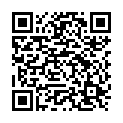|
|
|
| Module code: KIB-NETW |
|
|
2V+2P (4 hours per week) |
|
5 |
| Semester: 6 |
| Mandatory course: no |
Language of instruction:
German |
Assessment:
Project work
[updated 26.02.2018]
|
KI665 Computer Science and Communication Systems, Bachelor, ASPO 01.10.2014
, semester 6, optional course, technical
KIB-NETW (P221-0096) Computer Science and Communication Systems, Bachelor, ASPO 01.10.2021
, semester 6, optional course, technical
KIB-NETW (P221-0096) Computer Science and Communication Systems, Bachelor, ASPO 01.10.2022
, semester 6, optional course, technical
PIBWI79 Applied Informatics, Bachelor, ASPO 01.10.2011
, semester 6, optional course, informatics specific
PIB-NETW (P221-0096) Applied Informatics, Bachelor, ASPO 01.10.2022
, semester 4, optional course, informatics specific
PIB-NETW (P221-0096) Applied Informatics, Bachelor, SO 01.10.2026
, semester 4, optional course, informatics specific
PRI-NETW Production Informatics, Bachelor, SO 01.10.2023
, semester 4, optional course, informatics specific
PRI-NETW Production Informatics, Bachelor, SO 01.10.2026
, semester 4, optional course, informatics specific
|
60 class hours (= 45 clock hours) over a 15-week period.
The total student study time is 150 hours (equivalent to 5 ECTS credits).
There are therefore 105 hours available for class preparation and follow-up work and exam preparation.
|
Recommended prerequisites (modules):
None.
|
Recommended as prerequisite for:
|
Module coordinator:
Thomas Beckert, M.Sc. |
Lecturer: Thomas Beckert, M.Sc.
[updated 10.11.2016]
|
Learning outcomes:
Based on the content management system Umbraco, students will acquire the ability to conceptually assess Microsoft´s .NET framework and use it for the development of web portals.
They will be able to model web applications with the ASP. NET MVC pattern.
Students will be capable of creating interactive elements with the inline script engine Razor (C#).
In doing so, they will learn to extend the CMS backend. Using the SQL Management Studio, students will be able to view and modify database-driven information.
[updated 26.02.2018]
|
Module content:
1. Installing CMS Umbraco
2. .NET framework
3. MVC approach and Umbraco basics of the backend
4. Media content
5. Partial view macros
6. Grid - flexible content creation
7. Property editor
8. Umbraco API, C# and Visual Studio
9. Extending the backend
10. Database communication with PetaPoco
11. Handlers and web services in .NET
12. Search function in Umbraco
13. Multilingualism
14. Surface controller
15. Members area
16. Web application, project work/practical exercises
[updated 26.02.2018]
|
Recommended or required reading:
Will be announced in the course
[updated 26.02.2018]
|
Module offered in:
SS 2025,
SS 2024,
SS 2023,
SS 2022,
SS 2021,
...
|


